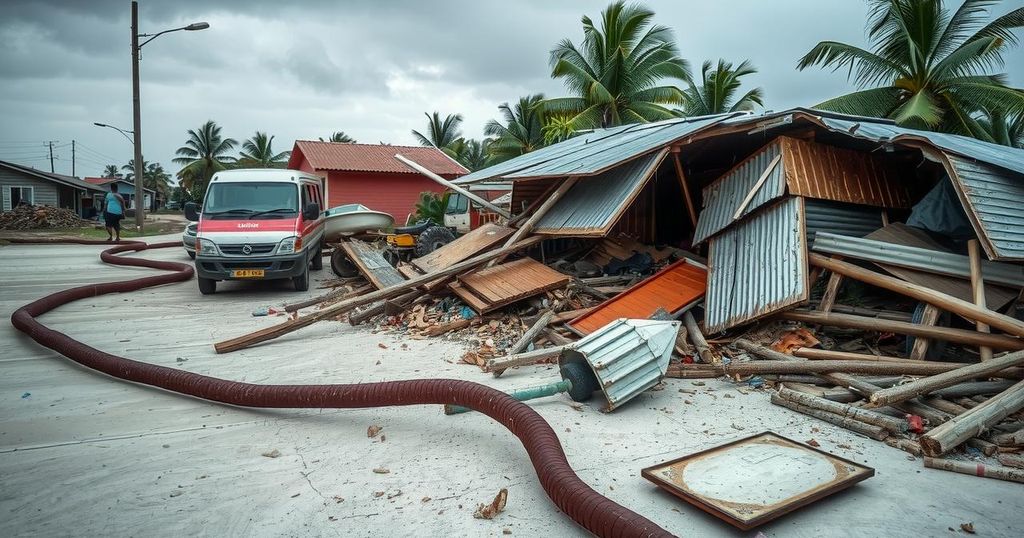Cyclone Chido Devastates Mozambique, Leaving Over 90,000 Children Affected
Cyclone Chido struck Mozambique on December 17, 2024, causing widespread destruction in Cabo Delgado, particularly impacting over 90,000 children. The cyclone resulted in the loss of thousands of homes, schools, and health facilities, amidst an ongoing humanitarian crisis exacerbated by conflict, drought, and disease. UNICEF has emphasized the urgent need for humanitarian support, estimating that $10 million is required to address the aftermath of the cyclone and to support vulnerable communities.
On December 17, 2024, Mozambique was severely impacted by Cyclone Chido, which resulted in the destruction of over 35,000 homes and affected more than 90,000 children, particularly in Cabo Delgado province. The cyclone’s devastation included the loss of at least 186 classrooms and damage to 20 health facilities. The affected region is already battling prolonged conflict, drought, and disease outbreaks, which have exacerbated the vulnerabilities faced by its young population.
Cyclone Chido made landfall near Pemba, unleashing heavy winds and significant rainfall that uprooted roofs and destabilized critical infrastructure, including electricity and communication systems. Cabo Delgado has been suffering from ongoing violence for over seven years, leading to the internal displacement of 1.3 million people, predominantly women and children. The cyclone also impacted neighboring Nampula and Niassa provinces, depriving over 25,000 families of electricity and endangering water access amid a cholera outbreak.
The humanitarian situation in Mozambique is dire, with projections indicating that nearly 3.3 million people will be in crisis levels of food insecurity in the coming year, compounded by the effects of El Niño and potential complications from La Niña. Currently, approximately 4.8 million individuals require humanitarian assistance, including a staggering 3.4 million children. The increase in climate-induced disasters poses a significant threat to the region, as exemplified by the recent devastation of Cyclone Freddy in 2023. UNICEF urges support for its emergency response efforts in Mozambique, requiring an urgent fund of $10 million to alleviate the impact of Cyclone Chido.
The topic of Cyclone Chido’s impact in Mozambique highlights the increasing frequency and severity of climate-related disasters in the region over the past decade. Mozambique is among the countries most vulnerable to climate change, where catastrophic storms have become more routine due to changing weather patterns. The humanitarian situation is further complicated by ongoing conflict in Cabo Delgado province, where internally displaced persons face challenges related to food security, health, and safety. The involvement of organizations like UNICEF is crucial for providing immediate relief and addressing long-term development needs.
Cyclone Chido has inflicted significant damage in Mozambique, particularly affecting children and vulnerable populations already suffering from multiple crises. The response from humanitarian organizations, including UNICEF, is pivotal in addressing the immediate needs following the cyclone while planning for future climate-related emergencies. Adequate funding and resources are vital to ensuring that assistance reaches those most in need, especially as the region braces for further climatic challenges in the years to come.
Original Source: reliefweb.int




Post Comment